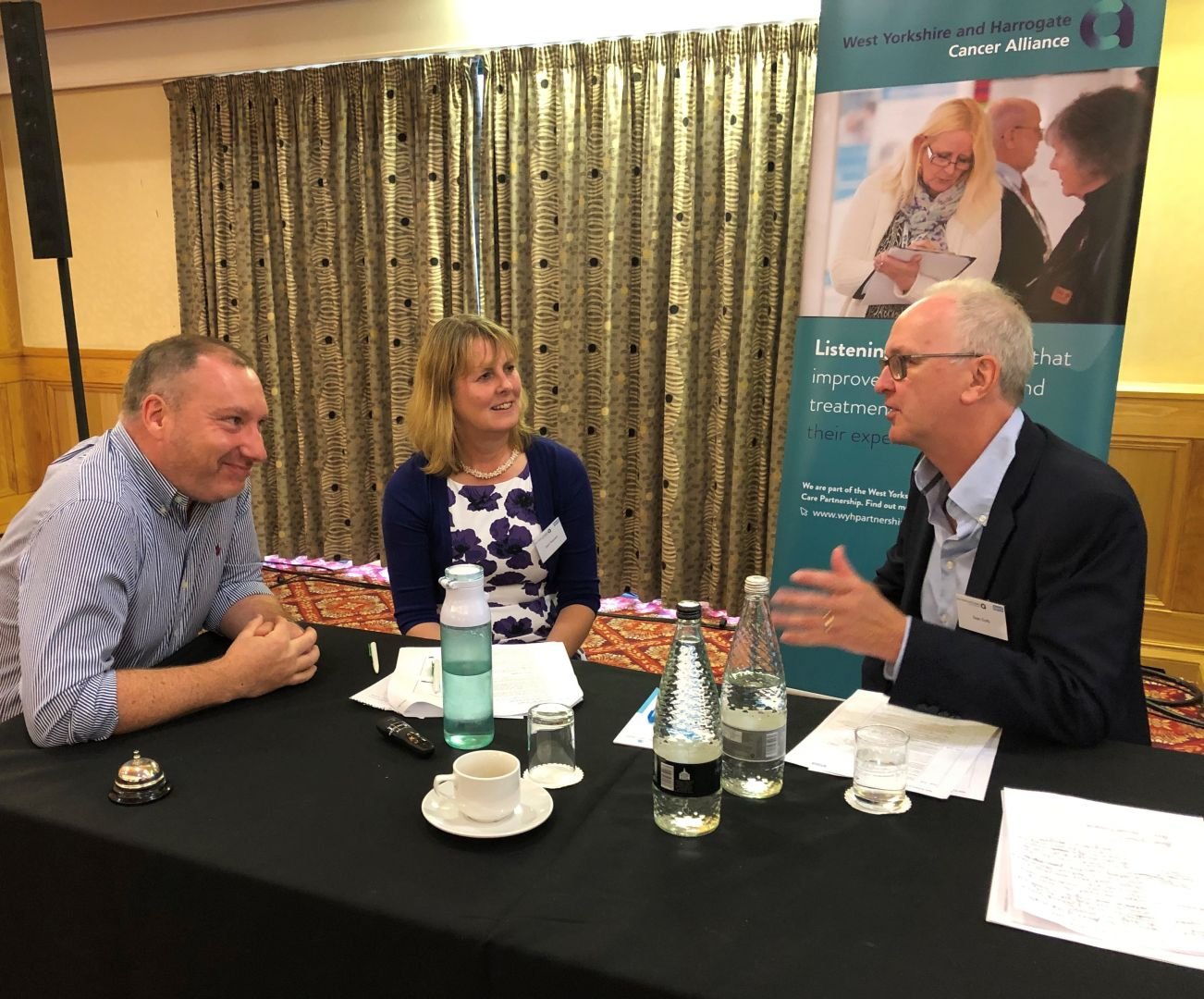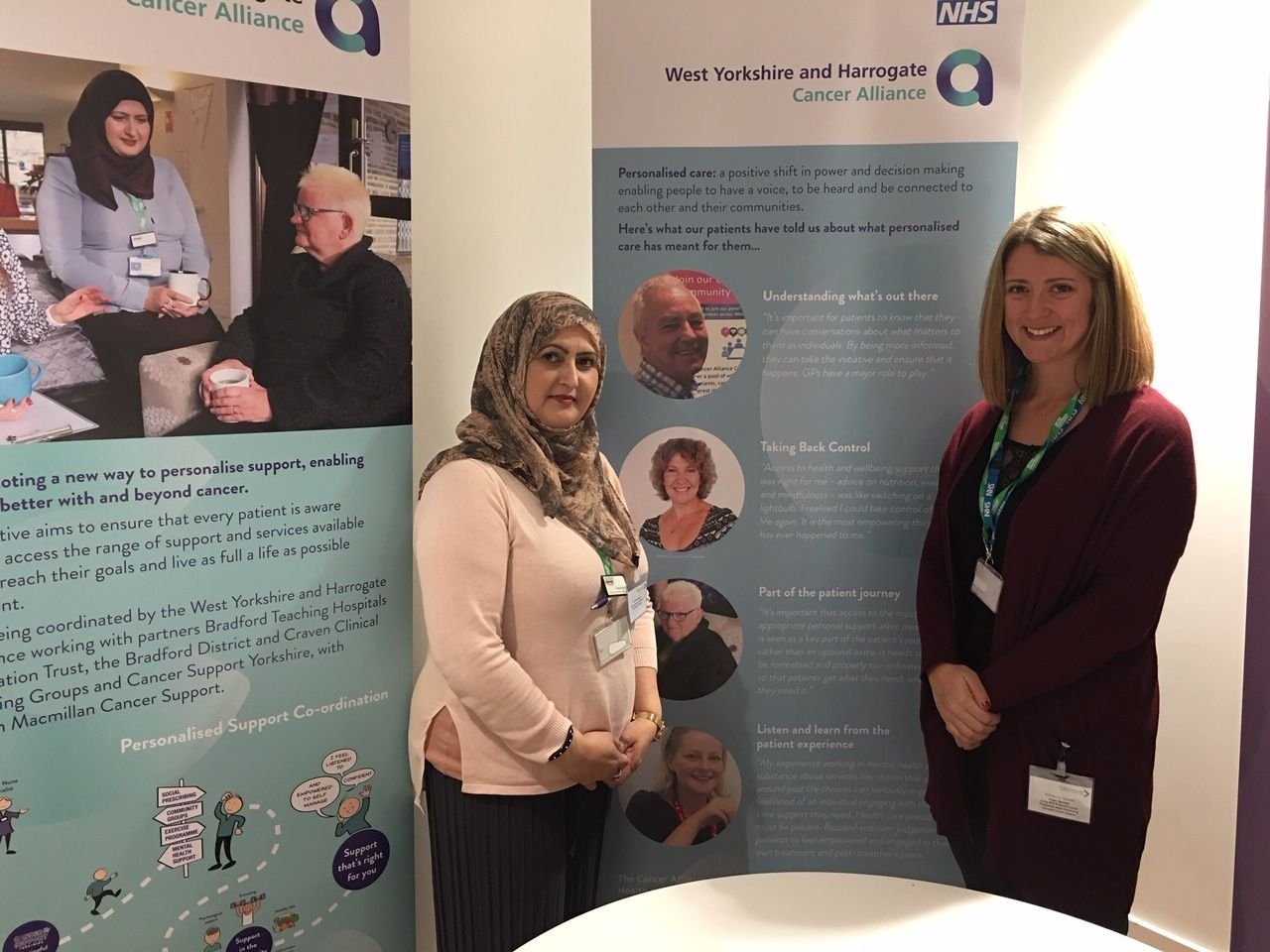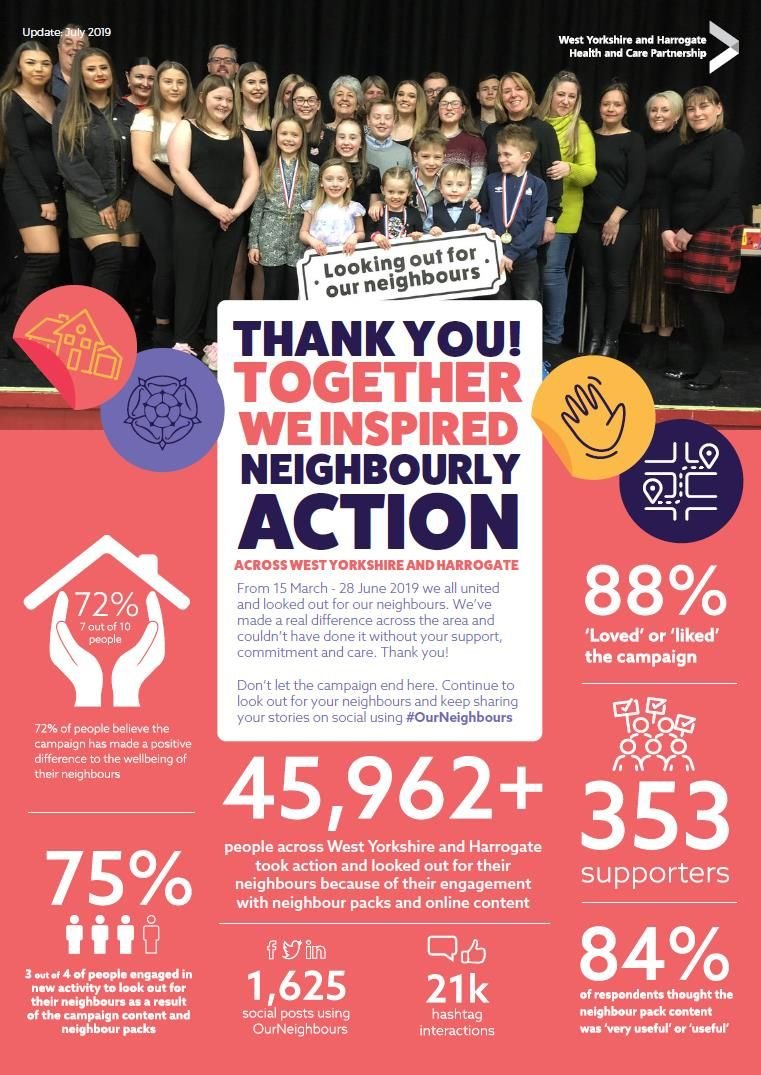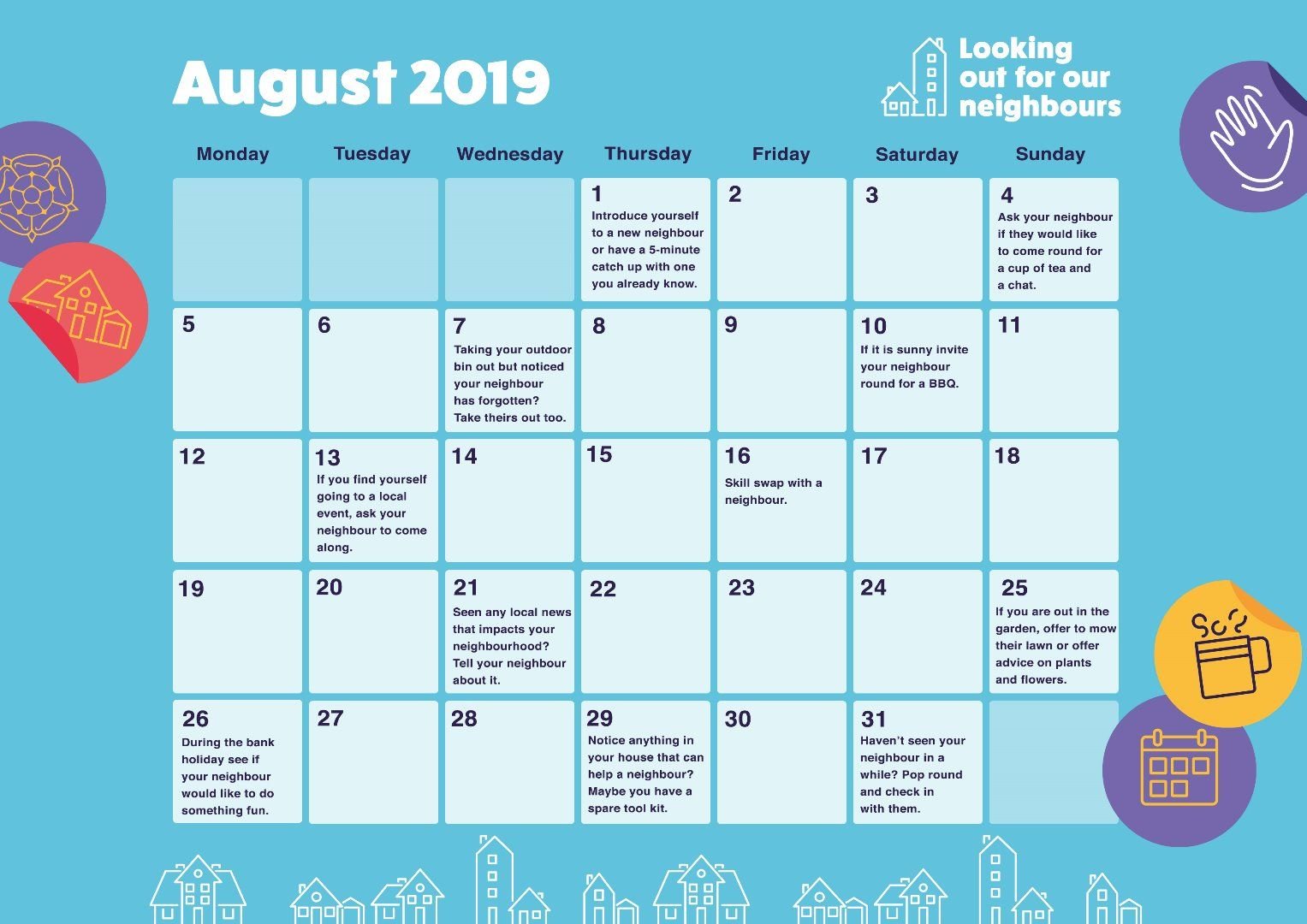Posted on: 2 August 2019
2 August 2019
Hello, my name is Sean.
It’s been an exciting few weeks for the Cancer Alliance, as we develop our role as system leaders across West Yorkshire and Harrogate, joining forces with all our partners involved in providing care and support for those affected by cancer.
Finalising our delivery plan for the next 12 months, launching our cancer improvement collaborative in conjunction with our Chief Executive colleagues in WYAAT and some focused organisational development work for the Alliance core team are just some of the milestones we’ve reached during July.
Our delivery plan has been summarised into a single page – a high level and easy to read summary of our work programme for 2019/2020 - and we’ve made this publicly available through our website. You can read it here
The plan reflects the fact that much of our activity will deliver across a number of priority areas, and the way in which staff within the core team will be required to work flexibly and ‘out of the box’, across the whole cancer programme.
One example would be our work on targeted lung health checks in Bradford and Wakefield – both already underway - and North Kirklees, where plans are being developed. It helps to deliver early diagnosis and make more cancers curable; it provides personalised care in communities closer to home; it supports improvements to the lung cancer optimal pathway and also facilitates the upskilling of primary care nurses and health care assistants to deliver this specialist work.
In turn, as we continue to deliver the cancer priority programme for the Health and Care Partnership, we are increasingly looking outwards to the broader health and care agenda to ensure that we capitalise on opportunities for Alliance work to be translated into wider system and patient benefit.
Delivery Plan
 There are a number of elements within our delivery plan for the next 12 months – aligned to the priorities in the NHS Long Term Plan - where this is clearly demonstrable, including Rapid Diagnostic Centres; personalised care, and new ways of working to manage diagnostic capacity and demand through improved networking.
There are a number of elements within our delivery plan for the next 12 months – aligned to the priorities in the NHS Long Term Plan - where this is clearly demonstrable, including Rapid Diagnostic Centres; personalised care, and new ways of working to manage diagnostic capacity and demand through improved networking.
The Alliance is well-placed to respond effectively to the Long Term Plan as a result of the hard work we and our stakeholders have undertaken around pilot work and innovation over the last three years, and the return on the investment of monies we secured from the national Cancer Transformation Fund.
New policy guidance on Rapid Diagnostic Centres was published this week. They will bring together in one patient-focused service (and in some cases, in one place) the latest diagnostic equipment and expertise, building on ten models previously piloted with Cancer Research UK, to look at patients whose vague but concerning symptoms present their GP with a clinical conundrum about where to refer.
Our own pilots in West Yorkshire and Harrogate (Leeds and Airedale) can be very proud of the way they have contributed and heavily influenced the development of this specification, which helps us maintain our key values of wrapping services around patients.
This lack of obvious referral route can then result in the so-called ‘ping pong’, whereby patients may visit their GPs many times before being referred for tests, or may end up with multiple referrals, as each specific tumour site is ruled out, until they are finally diagnosed.
RDCs will effectively offer a new concept of dealing with symptoms that do not necessarily indicate what to do next. By using a combination of blood tests, a chest X-ray and nurse consultation, appropriate next steps can be identified quickly removing the GPs’ clinical conundrum about where to refer - as well as reducing the number of people diagnosed through emergency admissions into the acute sector.
For patients with cancer, RDCs will enable them to access an accurate diagnosis more quickly, and to begin their treatment earlier. The majority of patients will not have cancer, and so will receive swift reassurance at a stressful time. Those diagnosed with other conditions will be referred on quickly to receive the care and support they need.
In short, they deliver a personalised diagnostic journey, wrapped around each individual patient, at a location that works for them.
Personalisation is another area where cancer is leading the way through our focused work around providing high quality, timely and personalised care as close to home as possible, focusing as much on patient experience and the support they receive after treatment has ended, as much as on their clinical outcomes.
Every patient who accesses cancer care and support has far more going on in their lives – and their health – than just their cancer diagnosis, and yet traditionally we have tended to view this in isolation.
Increasingly we are now treating cancer alongside other long term conditions and exploring how we can support the growing numbers of people living with and beyond cancer to access local services that acknowledge their holistic needs as a person.
Many of those services already exist and what’s needed is effective and co-ordinated information and advice on what’s out there. Our learning from work such as our personalised support co-ordination pilot in Bradford will be of immense benefit to other parts of the system, including the management of other long term conditions such as mental health and diabetes. Click here to watch the Bradford video.
Another of our priorities is ensuring all cancer services across WYH work in a co-ordinated way that is easy for patients to access and navigate. This includes the streamlining of diagnostic services to ensure they follow a consistent approach and use the same underpinning tools to monitor and manage demand and capacity.
Working in collaboration with WYAAT, the Cancer Alliance is investing in a team to support the work of the WYAAT diagnostic networks to better understand capacity and demand at system level to inform our longer term plans for West Yorkshire and Harrogate.
Combined with our commitment to the workforce and role development that is needed to turn this into a reality – including our Excellence In Innovation bursary scheme in partnership with Yorkshire Cancer Research - this will accrue significant benefits to the system much wider than the world of cancer.
Cancer Improvement Collaborative
 Readers of the weekly Partnership blog will already be familiar with the launch of our cancer improvement collaborative in early July, where more than 100 cancer clinicians, managers and other team members came together united by a common purpose.
Readers of the weekly Partnership blog will already be familiar with the launch of our cancer improvement collaborative in early July, where more than 100 cancer clinicians, managers and other team members came together united by a common purpose.
Through further collaboration and the explicit commitment of the WYAAT Chief Executives, we’re taking a whole-system approach to improving cancer waiting times performance, but with the ultimate aim of improving patient experience and outcomes. We are initially focusing on lung and prostate – currently the most challenging areas – but our plan is ultimately to roll out to all tumour pathways.
I was particularly struck by the comment made on the day by Harrogate Chief Executive Steve Russell, who referred to ‘both a moral and people imperative to break down organisational barriers and focus on the right thing for the individual’.
Surely that is the job of all of us working in health and social care, and the lessons we learn in challenging the status quo in how we operate and pushing boundaries in the context of cancer care can only help on that journey.
Leadership Across The System – At All Levels
The West Yorkshire and Harrogate Cancer Alliance is made up of all our partners involved in providing care and support for those affected by cancer. Like the wider Partnership, it brings together NHS organisations; local councils; charities; community and voluntary organisations and groups in an alliance to design and deliver the transformation of services and care; to reduce unacceptable variations in availability of and access to high quality care and treatment, to pilot innovative approaches and to share best practice.
To deliver on the Alliance objectives, it’s vital that as a core team we pull together a common thread and narrative across what on the surface may appear as a disparate programme of work, based on common values and commitment, and clearly communicate that through our day-to-day work with colleagues across the rest of the Alliance.
Our recent team timeout concentrated on the theme of system leadership and it was great to have Rob Webster, our Health and Care Partnership Lead Chief Executive, to give us his perspective, particularly around the need for a values-based approach. As Rob says, we are a guest in people’s lives, and it’s our people who should come first, not organisational structures.
As we take forward our delivery plan with our partners, we will remain committed to wrapping cancer services around the people of West Yorkshire and Harrogate, but also to ensuring that our leading edge work transcends boundaries and benefits as many people as possible across the health and care system.
Sean
Looking out for our neighbours: Campaign evaluation
 Please click on this link for our ‘Looking out for our neighbours’ campaign evaluation, produced with the support of the University of Leeds.
Please click on this link for our ‘Looking out for our neighbours’ campaign evaluation, produced with the support of the University of Leeds.
It highlights how 46,000+ people took action and looked out for their neighbours in support of the campaign between 15 March and the end of June. From helping with shopping, putting out bins to simply saying hello or starting a conversation, local communities shared how they have helped to combat loneliness across West Yorkshire and Harrogate.
The evaluation report, commissioned by the Partnership, was published on Monday following a month of speaking with local communities and listening to their stories through face-to-face interviews and an online survey.
Data included in the report howed that 72% of people believed that the campaign has made a positive difference to the wellbeing of their neighbours. There is a recommendation section which will be discussed with the Urgent and Emergency Programme Board and others as part of ‘what next’? There is a captive community who would like to see the campaign continue.
In the meantime we have produced a summer calendar to help activities continue. You can download a copy here. And also a supporter thank you message is here for you personally and also for everyone who took part. Please feel free to forward onto groups and community champions in your local area.
If you would like a member of the project team from your local area to come along and present the findings please don’t hesitate to get in touch.
Thank you so much everyone for getting well and truly behind this campaign, the first for the Partnership. You have all been amazing and it would not have been possible without all your support.

What else has been happening this week?
End of life care
Representatives from hospices across West Yorkshire and Harrogate will meet today to discuss priorities and challenges – with a view to identifying areas for joint working. We will keep you updated.
Diabetes
A meeting took place on Monday to discuss the potential to secure further diabetes funding. There are various initiatives taking place to prevent and support people with diabetes across West Yorkshire and Harrogate. This includes the West Yorkshire and Harrogate Healthy Hearts Programme and the planned care work on flash glucose monitoring. The NHS long Term Plan Implementation Framework covers specific requirements on diabetes and we want to work together to ensure we meet these as well as successfully draw down all funding available.
Producing the Partnership’s Five Year Plan
Communication and engagement colleagues met on Wednesday to discuss the development of the Partnership’s Five Year Plan. Ensuring communication and engagement colleagues working in our six local places (Bradford District and Craven; Calderdale, Harrogate, Kirklees, Leeds and Wakefield) are fully aware and involved in the work of the Partnership is critical to the way we work as we rely on them to support the development of West Yorkshire and Harrogate communications and engagement and share information via their local communication channels. A key principle of the way we work in partnership is to build on existing communication and engagement work already in place at a local level – rather than developing new mechanisms and channels solely for the purpose of the Partnership.
In all communications and engagement activity, we work on a local level and tailor our messages and methods accordingly to ensure we maximise all opportunities for connecting with, informing and engaging with our target audiences at a community level. This means making the most of community assets / champions and resources at a local level in order to reach everyone. This also helps to ensure there is a coordinated approach and that we are not ‘getting in the way’ of valuable local work. You can see examples of the way this works via our stroke engagement and ‘Looking out for our neighbours’ campaign.
Stroke care
West Yorkshire and Harrogate Stroke Programme identified and agreed that a sustainable stroke clinical network should be established for the area to enable continued partnership working to further improve quality and outcomes across the whole of the stroke pathway for people living across our area. We sought expressions of interest from colleagues, working in our stroke services, to Chair the stroke network for an initial period of 12 months.
We are delighted to confirm that Dr Prabal Datta has been appointed to this role and look forward to working with him in his new role from the 17 September.
We have also successful in securing funding for a project manager for six months to focus on community rehabilitation stroke services.

